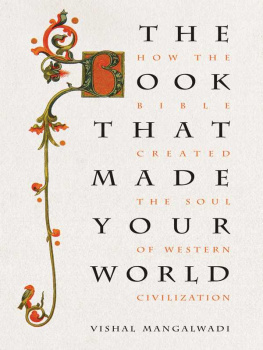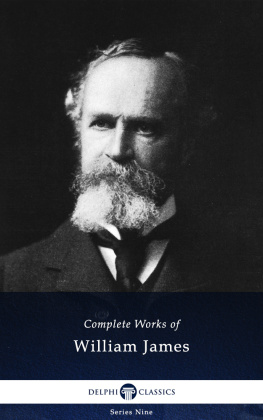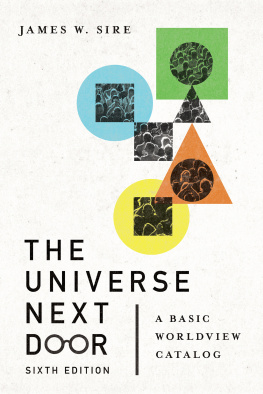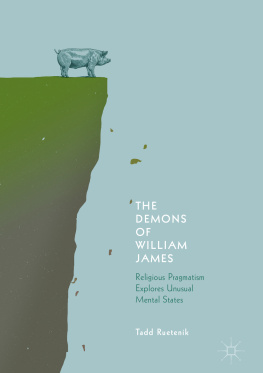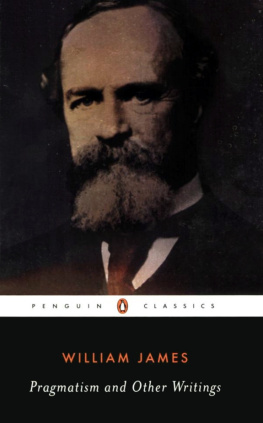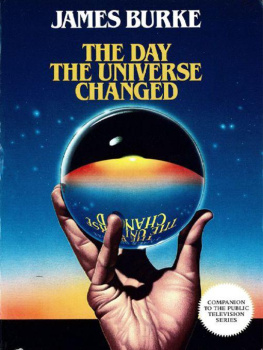James William - A Pluralistic Universe
Here you can read online James William - A Pluralistic Universe full text of the book (entire story) in english for free. Download pdf and epub, get meaning, cover and reviews about this ebook. genre: Science. Description of the work, (preface) as well as reviews are available. Best literature library LitArk.com created for fans of good reading and offers a wide selection of genres:
Romance novel
Science fiction
Adventure
Detective
Science
History
Home and family
Prose
Art
Politics
Computer
Non-fiction
Religion
Business
Children
Humor
Choose a favorite category and find really read worthwhile books. Enjoy immersion in the world of imagination, feel the emotions of the characters or learn something new for yourself, make an fascinating discovery.
- Book:A Pluralistic Universe
- Author:
- Genre:
- Rating:4 / 5
- Favourites:Add to favourites
- Your mark:
- 80
- 1
- 2
- 3
- 4
- 5
A Pluralistic Universe: summary, description and annotation
We offer to read an annotation, description, summary or preface (depends on what the author of the book "A Pluralistic Universe" wrote himself). If you haven't found the necessary information about the book — write in the comments, we will try to find it.
A Pluralistic Universe — read online for free the complete book (whole text) full work
Below is the text of the book, divided by pages. System saving the place of the last page read, allows you to conveniently read the book "A Pluralistic Universe" online for free, without having to search again every time where you left off. Put a bookmark, and you can go to the page where you finished reading at any time.
Font size:
Interval:
Bookmark:
The Project Gutenberg EBook of A Pluralistic Universe, by William James
This eBook is for the use of anyone anywhere at no cost and withalmost no restrictions whatsoever. You may copy it, give it away orre-use it under the terms of the Project Gutenberg License includedwith this eBook or online at www.gutenberg.net
Title: A Pluralistic Universe Hibbert Lectures at Manchester College on the Present Situation in Philosophy
Author: William James
Release Date: April 10, 2004 [EBook #11984]
Language: English
*** START OF THIS PROJECT GUTENBERG EBOOK A PLURALISTIC UNIVERSE ***
Produced by Felicia Urbanski, David Starner, Nicolas Hayes and theOnline Distributed Proofreading Team
Hibbert Lectures at Manchester College on the Present Situation in
Philosophy
1909
Our age is growing philosophical again, 3. Change of tone since 1860, 4. Empiricism and Rationalism defined, 7. The process of Philosophizing: Philosophers choose some part of the world to interpret the whole by, 8. They seek to make it seem less strange, 11. Their temperamental differences, 12. Their systems must be reasoned out, 13. Their tendency to over-technicality, 15. Excess of this in Germany, 17. The type of vision is the important thing in a philosopher, 20. Primitive thought, 21. Spiritualism and Materialism: Spiritualism shows two types, 23. Theism and Pantheism, 24. Theism makes a duality of Man and God, and leaves Man an outsider, 25. Pantheism identifies Man with God, 29. The contemporary tendency is towards Pantheism, 30. Legitimacy of our demand to be essential in the Universe, 33. Pluralism versus Monism: The 'each- form' and the 'all-form' of representing the world, 34. Professor Jacks quoted, 35. Absolute Idealism characterized, 36. Peculiarities of the finite consciousness which the Absolute cannot share, 38. The finite still remains outside of absolute reality, 40.
Recapitulation, 43. Radical Pluralism is to be the thesis of these lectures, 44. Most philosophers contemn it, 45. Foreignness to us of Bradley's Absolute, 46. Spinoza and 'quatenus,'47. Difficulty of sympathizing with the Absolute, 48. Idealistic attempt to interpret it, 50. Professor Jones quoted, 52. Absolutist refutations of Pluralism, 54. Criticism of Lotze's proof of Monism by the analysis of what interaction involves, 55. Vicious intellectualism defined, 60. Royce's alternative: either the complete disunion or the absolute union of things, 61. Bradley's dialectic difficulties with relations, 69. Inefficiency of the Absolute as a rationalizing remedy, 71. Tendency of Rationalists to fly to extremes, 74. The question of 'external' relations, 79. Transition to Hegel, 91.
Hegel's influence. 85. The type of his vision is impressionistic, 87. The 'dialectic' element in reality, 88. Pluralism involves possible conflicts among things, 90. Hegel explains conflicts by the mutual contradictoriness of concepts, 91. Criticism of his attempt to transcend ordinary logic, 92. Examples of the 'dialectic' constitution of things, 95. The rationalistic ideal: propositions self-securing by means of double negation, 101. Sublimity of the conception, 104. Criticism of Hegel's account: it involves vicious intellectualism, 105. Hegel is a seer rather than a reasoner, 107. 'The Absolute' and 'God' are two different notions, 110. Utility of the Absolute in conferring mental peace, 114. But this is counterbalanced by the peculiar paradoxes which it introduces into philosophy, 116. Leibnitz and Lotze on the 'fall' involved in the creation of the finite, 119. Joachim on the fall of truth into error, 121. The world of the absolutist cannot be perfect, 123. Pluralistic conclusions, 125.
Superhuman consciousness does not necessarily imply an absolute mind, 134. Thinness of contemporary absolutism, 135. The tone of Fechner's empiricist pantheism contrasted with that of the rationalistic sort, 144. Fechner's life, 145. His vision, the 'daylight view,' 150. His way of reasoning by analogy, 151. The whole universe animated, 152. His monistic formula is unessential, 153. The Earth-Soul, 156. Its differences from our souls, 160. The earth as an angel, 164. The Plant-Soul, 165. The logic used by Fechner, 168. His theory of immortality, 170. The 'thickness' of his imagination, 173. Inferiority of the ordinary transcendentalist pantheism, to his vision, 174.
THE COMPOUNDING OF CONSCIOUSNESS 179 The assumption that states of mind may compound themselves, 181. This assumption is held in common by naturalistic psychology, by transcendental idealism, and by Fechner, 184. Criticism of it by the present writer in a former book, 188. Physical combinations, so-called, cannot be invoked as analogous, 194. Nevertheless, combination must be postulated among the parts of the Universe, 197. The logical objections to admitting it, 198. Rationalistic treatment of the question brings us to an impasse, 208. A radical breach with intellectualism is required, 212. Transition to Bergson's philosophy, 214. Abusive use of concepts, 219.
Professor Bergson's personality, 225. Achilles and the tortoise, 228. Not a sophism, 229. We make motion unintelligible when we treat it by static concepts, 233. Conceptual treatment is nevertheless of immense practical use, 235. The traditional rationalism gives an essentially static universe, 237. Intolerableness of the intellectualist view, 240. No rationalist account is possible of action, change, or immediate life, 244. The function of concepts is practical rather than theoretical, 247. Bergson remands us to intuition or sensational experience for the understanding of how life makes itself go, 252. What Bergson means by this, 255. Manyness in oneness must be admitted, 256. What really exists is not things made, but things in the making, 263. Bergson's originality, 264. Impotence of intellectualist logic to define a universe where change is continuous, 267. Livingly, things are their own others, so that there is a sense in which Hegel's logic is true, 270.
Green's critique of Sensationalism, 278. Relations are as immediately felt as terms are, 280. The union of things is given in the immediate flux, not in any conceptual reason that overcomes the flux's aboriginal incoherence, 282. The minima of experience as vehicles of continuity, 284. Fallacy of the objections to self-compounding, 286. The concrete units of experience are 'their own others,' 287. Reality is confluent from next to next, 290. Intellectualism must be sincerely renounced, 291. The Absolute is only an hypothesis, 292. Fechner's God is not the Absolute, 298. The Absolute solves no intellectualist difficulty, 296. Does superhuman consciousness probably exist? 298.
Specifically religious experiences occur, 303. Their nature, 304. They corroborate the notion of a larger life of which we are a part, 308. This life must be finite if we are to escape the paradoxes of monism, 310. God as a finite being, 311. Empiricism is a better ally than rationalism, of religion, 313. Empirical proofs of larger mind may open the door to superstitions, 315. But this objection should not be deemed fatal, 316. Our beliefs form parts of reality, 317. In pluralistic empiricism our relation to God remains least foreign, 318. The word 'rationality' had better be replaced by the word 'intimacy,' 319. Monism and pluralism distinguished and defined, 321. Pluralism involves indeterminism, 324. All men use the 'faith-ladder' in reaching their decision, 328. Conclusion, 330.
Next pageFont size:
Interval:
Bookmark:
Similar books «A Pluralistic Universe»
Look at similar books to A Pluralistic Universe. We have selected literature similar in name and meaning in the hope of providing readers with more options to find new, interesting, not yet read works.
Discussion, reviews of the book A Pluralistic Universe and just readers' own opinions. Leave your comments, write what you think about the work, its meaning or the main characters. Specify what exactly you liked and what you didn't like, and why you think so.



